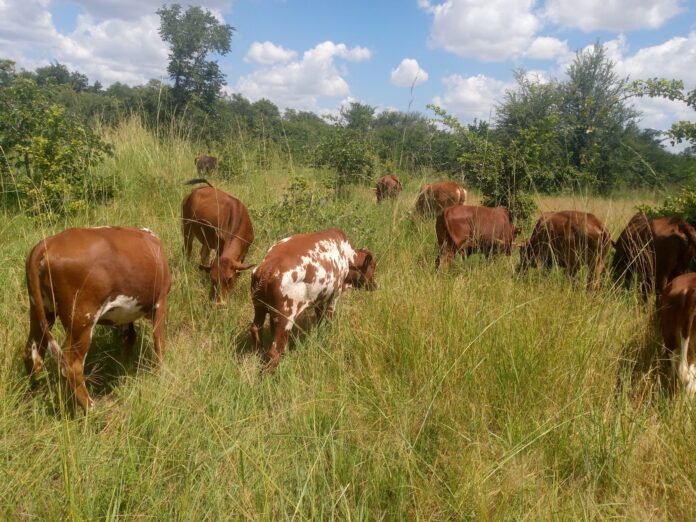By Hwande Sheunesu
Livestock farmers in Gokwe North District, Zimbabwe, are hopeful for an economic revival as this year’s long-awaited rains help reverse the devastating effects of past droughts.
The rainfall has brought a welcome respite to the northern region’s pastures, transforming them into lush expanses of green following the of normal rainfall patterns that has revitalized the land, providing a boon for farmers, ranchers, and wildlife alike.
With adequate moisture, grasses and vegetation have grown thick and strong, providing a rich source of nutrition for livestock.
This resurgence has rekindled hope among locals who struggled to maintain their herds last year, particularly during the challenging start to this season.
The drought had a devastating impact, with many farmers losing their cattle while desperate ones were forced to sell their mature Mashona cows to opportunistic buyers for as little as USD 80-100—a fraction of their true value.
However, with the recent lifting of the cattle movement ban from Midlands province to other provinces for direct slaughter, farmers in Gokwe are now assured of a good market for their cattle.
As a result, the region which relies heavily on livestock farming following the decline of cotton production is now set register improved incomes.
Additionally, the government has addressed the long-standing issue of water scarcity by initiating the installation of solar-powered systems for community boreholes and drilling additional boreholes to cater to the entire community.
This initiative has brought joy to aged subsistence farmers, who have long struggled to access water for their cattle and themselves, especially during the dry season when inland rivers and dams dry up.
Communal farmers in Ward 12 have also praised both traditional and political leadership for being dedicated representatives who consistently deliver results.
The improved pastures will lead to increased productivity due to reduced demand for supplementary feeding.
This, in turn, will improve their standard of living thanks to a good market for their cattle, enhance their food security through boosted nutritional gardens, and create employment opportunities.
As the farmers in Gokwe continue to rebuild and thrive, their future looks brighter than ever, filled with promise and opportunity.









